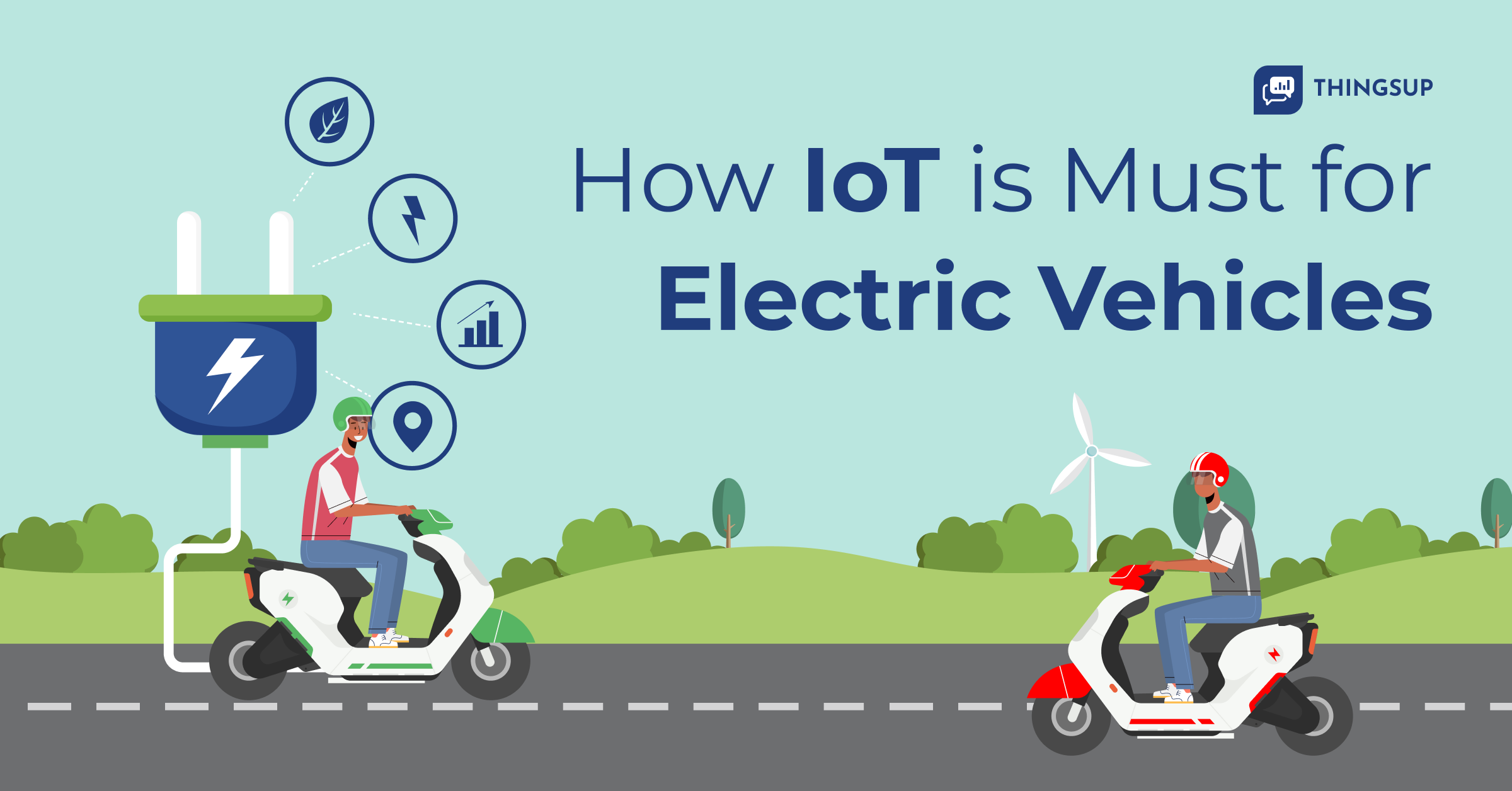As the world is moving towards a sustainable future, electric vehicle (EV) have emerged as a compelling solution to reduce emissions and revolutionize transportation. In this era of innovation, the integration of Internet of Things (IoT) technology with electric vehicles becomes not just a choice, but a necessity. This blog explores the critical role IoT plays in enhancing EV performance, addressing monitoring challenges, and ushering in a new era of smart mobility.
The use of electric vehicles (EVs) is rapidly increasing due to a growing concern for the environment. In 2020, the number of EVs on the road reached over 10 million, which is a huge jump of 43% from the previous year, according to the International Energy Agency (IEA). The IEA predicts that by 2030, there could be a whopping 145 million EVs driving around, showing how much people are choosing eco-friendly transportation.
And it’s not just cars – electric bikes (e-bikes) are also becoming really popular. E-bikes provide another way to travel that’s good for the planet. More and more people are using e-bikes because they’re efficient and don’t harm the environment. E-bike sales are going up a lot, and many people are picking this eco-friendly way of getting around. This rise in e-bike use is another sign that people are moving towards eco-friendly and electric transportation options.
It’s clear that the way we get around is changing a lot. More and more people are using electric vehicles and e-bikes, which is making transportation better for the planet. This big change is happening all around the world, and it’s a step towards a more sustainable future.
Facing Challenges in Electric Vehicle Monitoring:
Monitoring electric vehicles (EVs) comes with its own set of tricky problems that need smart solutions:
1. Battery Health and Efficiency:
Making sure the battery in an electric car stays healthy and works well is really important. We need to keep an eye on things like temperature, how many times the battery is charged, and how it’s holding up over time. This helps the battery last longer and work better.
2. No More Worrying About Running Out of Power:
A common worry for EV drivers is running out of power before they reach a charging station. To solve this, we need to know exactly how much power is left in the battery, where the nearest charging stations are, and how far the car can still go. Having this information right away can make people feel better and less worried.
3. Making Electric Cars Perform Better:
We can make electric cars work better by looking at data about how people drive, how much power the car uses, and how it gets energy back while driving.
4. Keeping Electric Cars Safe:
It’s really important to protect electric cars from being stolen. We can use smart ways to stop thieves and even find the car quickly if it’s taken.
5. Checking Cars from Far Away:
We can also use technology to check how well the electric car is doing even when we’re not close to it. This helps us find out if anything might go wrong before it becomes a big problem. Fixing things early saves time and money.
6. Keeping Information Safe:
The information that electric cars give us, like where they are and how they’re driven, needs to stay private and safe. We use strong security measures to make sure only the right people can see this information.
As more and more electric cars hit the road, we’re finding clever ways to solve these challenges. From making batteries last longer to helping people feel less worried about running out of power, technology is making electric cars even better and safer to use.
How to Identify the Problem and Alert the User:
IoT technology equips EVs with the ability to collect, analyze, and act upon real-time data to address these challenges:
1. Sensors and Data Collection:
IoT-enabled sensors monitor various parameters like battery temperature, voltage, and charging status, ensuring that data is continuously collected.
2. Data Analytics:
Advanced analytics algorithms process the collected data to identify patterns, anomalies, and potential issues, offering insights into battery health, driving efficiency, and more.
3. Real-time Alerts:
When irregularities are detected, IoT systems can generate real-time alerts for drivers and fleet managers, enabling swift actions to prevent issues and optimize performance.
Thingsup EV Track: Revolutionizing Electric Vehicle Monitoring:
Thingsup EV Track is at the forefront of the IoT-driven evolution of electric vehicle monitoring, offering a comprehensive suite of features:
1. Real-Time Battery Health Monitoring:
Thingsup EV Track monitors critical battery parameters in real time, providing insights into temperature, charge cycles, and overall health, ensuring optimal battery performance and longevity.
2. Trip Planning:
With accurate data on energy consumption and available charging stations, Thingsup EV Track eliminates trip planning by Giving users an access to all wide network of charging station points.
3. Performance Insights:
BMS and Battery performance Analysis, Charge capacity and vehicle range Analysis, Charging Patterns, Data export possible for further analysis.
4.Range Anxiety Reduction:
Thingsup EV Track calculates and displays real-time estimated range based on driving habits, battery health, and environmental factors, helping users overcome range anxiety and plan their trips confidently.
5. Smart Charging Scheduling:
The system allows users to set personalized charging schedules, taking advantage of off-peak electricity rates and ensuring the vehicle is ready when needed, while also minimizing stress on the power grid.
6. Emergency Assistance Integration:
Thingsup EV Track can be integrated with emergency assistance services, automatically sending vehicle location and relevant data to responders in case of accidents or breakdowns, enhancing safety and response times.
7. Environmental Impact Tracking:
Users can monitor their EV’s carbon footprint reduction, energy savings, and overall environmental impact compared to traditional internal combustion engine vehicles, promoting sustainable transportation choices.
8. Warranty and Maintenance Reminders:
The system keeps track of warranty periods and scheduled maintenance tasks, sending timely reminders to users, and ensuring they adhere to recommended service intervals to maintain warranty coverage.
Conclusion
As the automotive industry accelerates towards electrification, IoT technology emerges as a vital technology that propels electric vehicles into the future. The fusion of real-time data collection, advanced analytics, and proactive alerts offered by solutions like Thingsup EVTrack revolutionize electric vehicle monitoring, enhancing battery life, optimizing performance, and gives intels to the drivers. The synergy between IoT and electric vehicles not only addresses current challenges but also forges an innovative path towards a greener and smarter future of transportation.
Join the electric revolution with Thingsup EV Track! Elevate your EV experience through IoT-powered monitoring for optimal battery health, enhanced trip planning, and performance insights. Contact us now for a smarter, greener future in electric mobility.





